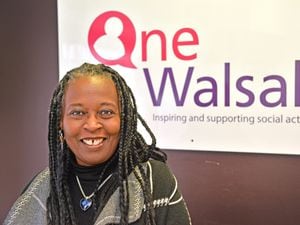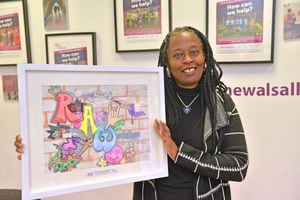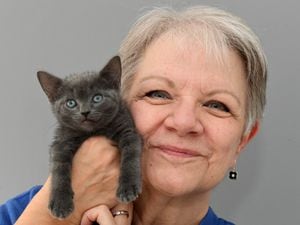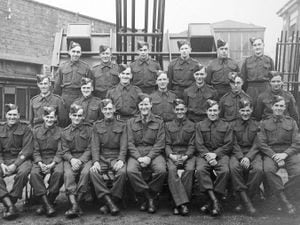Voluntary organisations facing financial squeeze too
David Cameron called them the Big Society. In one of his first speeches on entering Downing Street, he spoke about the contribution that thousands of small charitable and voluntary organisations made in providing services that millions relied on.

Today there are 165,758 voluntary organisations in the UK, providing a workforce two-thirds the size of the NHS.
But Vicky Hines warns that many of these groups face a fight for survival at a time when the public are ever more dependent on their services.
"I'm not sure this country realises that if the voluntary sector wasn't there, the impact it would have," says the chief executive of One Walsall, a group set up to provide support to charitable organisations in the borough.
She says a combination of rising inflation, falling disposable incomes and the after-effects of the pandemic have created a "perfect storm" which has left many charitable organisations fighting for survival.
A report by the National Council for Voluntary Organisations says that, for the first time in 20 years, the sector is now reliant on public donations for more than half of its income.
And as the cost of living crisis takes its toll on disposable incomes, this leaves smaller groups particularly vulnerable.
One Walsall has existed in its present form since 2014, although it can trace its roots back to the turn of the 21st century.
It was created to provide administrative support and advice to small voluntary and charitable organisations in the borough. This might be in the form of help to long-established groups, or for people who have an idea for a voluntary group but would benefit from the experience or expertise it can provide.

"You might have an idea to set up an organisation, but not know how to go about it," says Miss Hines.
She cites the example of somebody who lost a child to suicide, and wanted to make a difference.
"They wanted to set up an organisation to support young people around the Midlands who were affected by suicide, but didn't know how to do it," she says.
"We're able to talk them through the logistics of setting up an organisation. You might need to open a bank account, you might need a board of directors, and we can help with that."
The organisation also helps charities navigate the minefield of securing external funding, offering advice on the different sources available, and how to submit bids. Last year it provided help to voluntary organisations in securing £852,000 worth of external funding.
Miss Hines says funding sources are still available, but the financial squeeze means tendering for this money is becoming increasingly competitive. It is often only available for a limited term, which makes it difficult for organisations to draw up long-term plans or to employ staff.
"You can get short-term funding for a year, or a couple of years if you are lucky," she says.
"A lot of people aren't going to come for a year, so there's no certainty."
Miss Hines took up her role in November, having previously worked for the housing charity Shelter and as an officer for Wolverhampton Council before that.
In recent years, local government has been increasingly reliant on work by such organisations, with volunteers now staffing public libraries and museums.
"I think the change over the years has been the reduction in funding to the statutory sector, leaving voluntary groups to fill the gaps," says Miss Hines.
But at their best the real strength of voluntary groups lies in their grassroots origins, giving them the ability to identify and respond to needs that public bodies would find difficult. Once these groups are lost, it will not only place a greater strain on the public purse, but their work will be impossible to replicate.
"The voluntary sector is there to complement the work that statutory bodies like councils and health authorities do," says Miss Hines.
"They are able to get to the people that other organisations aren't able to."





